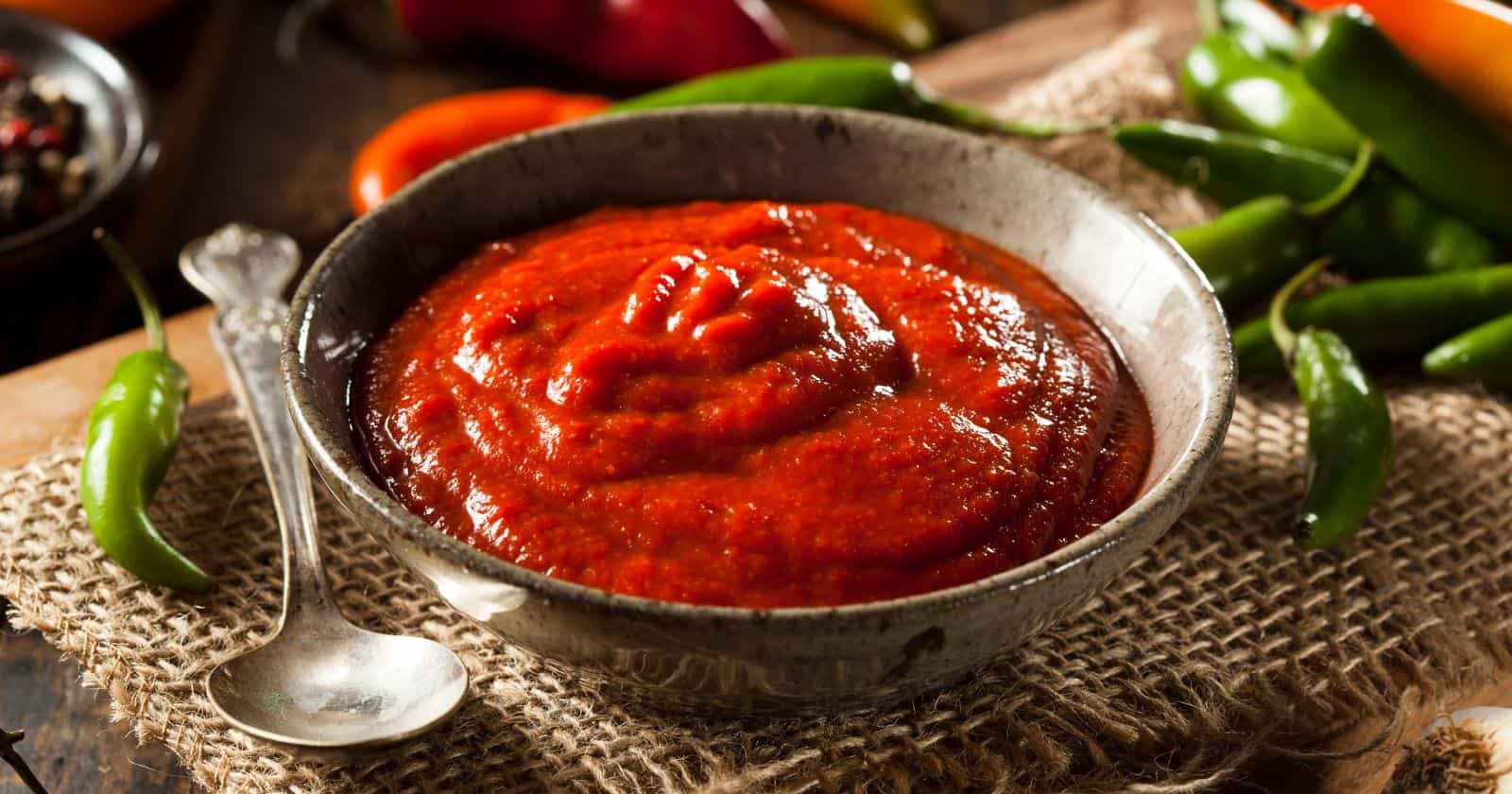Spicing up your meals with hot sauce may be a smart move for your health. This flavorful condiment made from chili peppers packs a fiery kick along with an array of potential wellness benefits. From fighting inflammation to aiding weight loss, hot sauce has earned its reputation as a nutritional powerhouse.
But before you start drizzling Sriracha on everything, it’s important to keep in mind that hot sauce is no miracle elixir. Consumed excessively or by sensitive individuals, it can also lead to some adverse effects. Like most things in nutrition, moderation and balance are key.
The prospect of improving your health just by adding tasty heat and flavor to foods is certainly appealing. But don’t get burned by overdoing it with hot sauce or unrealistic expectations. When incorporated sensibly into your diet, hot sauce can be a nutritious addition. But it should complement, not replace, an overall healthy lifestyle.
Let’s take a balanced look at the evidence-based health benefits, risks, and best practices for enjoying hot sauce. A little bit of heat could be just what your wellness routine needs to turn up the flavor and nutritional value of your diet.
Potential Hot Sauce Health Benefits
Here are some of the leading research-supported ways that hot sauce made from chili peppers could improve your health:
Antioxidant and Anti-Inflammatory Effects
Hot peppers contain a wealth of beneficial plant compounds with antioxidant and anti-inflammatory activities, including:
- Vitamin C
- Vitamin A
- Flavonoids
- Carotenoids
- Capsaicin
These nutrients combat oxidative stress and inflammation in the body, which are risk factors for chronic diseases. The capsaicin in hot sauce also exhibits direct anti-inflammatory properties.
Weight Loss Aid
Capsaicin has been shown to:
- Boost metabolism and calorie burning slightly
- Increase fat breakdown
- Reduce appetite and calories consumed
This makes hot sauce a potential complement to a diet and exercise regimen for weight management.
Heart Health
Regularly consuming chili peppers:
- Improves blood flow
- Lowers cholesterol
- Helps prevent blood clots
This suggests that hot sauce could benefit cardiovascular health when eaten regularly as part of a balanced diet.
Blood Sugar Control
Capsaicin may help regulate insulin and blood sugar levels. This could support diabetes prevention and management when paired with a healthy lifestyle.
Nutrient Delivery
Hot sauce allows you to add flavor to recipes while obtaining useful amounts of:
- Vitamin C
- Vitamin B6
- Vitamin K
- Potassium
- Iron
Drawbacks and Dangers of Hot Sauce
Despite some benefits, hot sauce does come with some downsides:
- Can aggravate gastrointestinal issues like ulcers, IBS, and GERD
- Potential overuse and addiction to spicy flavor
- Risk of feeling dependent on it for health benefits
- May mask flavors of nutritious foods
- Not recommended for infants or young children
Additionally, some commercial hot sauces are high in sodium, preservatives, and artificial ingredients. Check labels and select natural varieties whenever possible.
And as with any food, hot sauce should be enjoyed in moderation as part of an overall healthy eating plan for optimal wellness. It is no substitute for good nutrition and lifestyle habits.
Hot Sauce Nutrition Facts
The nutrition facts for hot sauce can vary widely by brand and recipe, but in general:
- Calories – Around 10-60 calories per tablespoon
- Fat – Very minimal from the peppers/oil
- Carbs – Around 1-5 grams sugar per serving
- Protein – None or very minimal
- Vitamins/minerals – Vitamin C, vitamin A, potassium
Be mindful of sodium content, as some hot sauces contain high amounts of salt. Seek lower sodium varieties whenever possible.
Also look for hot sauces made from real chile peppers as the first ingredient, not artificial flavors. This maximizes health benefits.
Healthy Ways to Add Hot Sauce to Your Diet
Here are some ideas for incorporating hot sauce into recipes while avoiding excessive amounts:
- Add a few dashes to eggs or omelets
- Mix into healthy dips, dressings, marinades, and sauces
- Use as a rub or marinade for lean proteins
- Add to soups, stews, and chilis for flavor
- Mix into roasted or grilled vegetables
- Add a dash to plain Greek yogurt
- Use as a sandwich or burrito sauce
- Mix into bean or grain dishes like rice and quinoa
Focus on adding small amounts for flavor rather than dousing food in hot sauce. Paired with an overall balanced diet, this allows you to reap benefits without overdoing it on capsaicin.
Are There Any Side Effects of Eating Too Much Hot Sauce?
Consuming large quantities of hot sauce or chili peppers can cause:
- Indigestion, heartburn, abdominal pain
- Diarrhea or irritated bowel
- Nausea
- Dehydration from increased thirst
- Darkening of stool
- Sensation of burning during urination
- Aggravated hemorrhoids
- Damaged taste buds and loss of taste
- Addictive cravings for spicy foods
Moderation is key. Limit hot sauce intake if you experience any negative gastrointestinal effects. Avoid giving hot sauce to young children.
Should You Take Hot Sauce Supplements or Extracts?
Some capsaicin tablets and extracts are marketed for health benefits. However, these concentrated doses come with greater risks:
- Easier to exceed safe limits
- Higher likelihood of burning/irritation
- Little evidence for weight loss efficacy
- Unregulated quality and purity
Whole chili peppers or hot sauce are a safer way to obtain capsaicin. Focus on getting antioxidants from a range of colorful fruits and vegetables as well. Supplements should not replace good nutrition.
The Takeaway: Is Hot Sauce Good for Your Health?
Here’s the final verdict on harnessing the health potential of hot sauce:
- Provides beneficial antioxidants and nutrients
- May support weight loss, heart health, and blood sugar regulation
- Boosts flavor of recipes with minimal calories
However:
- Should be used in moderation to avoid side effects
- Not a substitute for comprehensive diet and lifestyle
- Risk of overdoing it or becoming dependent on taste
- Not recommended for those with stomach conditions
Overall, incorporating a moderate amount of natural hot sauce into a diet rich in plants, fiber, lean protein, and nutrients can be a healthy practice for many people. But balance is key – don’t get burned by overdoing it!





